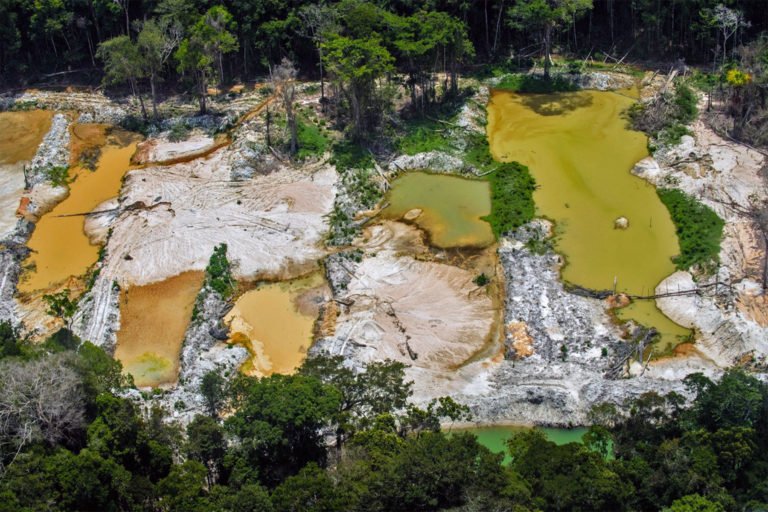- Mongabay published more than a dozen in-depth investigations in 2022 to hold companies and governments accountable for their actions.
- The investigations ranged from the Amazon to the forests of Central Africa and the Pacific Ocean, covering numerous issues, from illegal logging to threats to environmental defenders and shark finning.
- In this article, Mongabay takes a look back at some of the most impactful investigations from 2022.
In 2022, Mongabay continued its mission to hold the powerful to account through its investigative reporting program. Below is a selection of some of our most impactful work this year.
Exclusive: Shark finning rampant across Chinese tuna firm’s fleet
Following on from Mongabay’s 2021 investigation into Dalian Ocean Fishing, which looked at how the Chinese tuna firm had mistreated its workers, this year our reporters exposed how its fleet had illegally targeted shark in international waters. Based on dozens of interviews with deckhands who worked on Dalian’s boats, we found evidence that the company had harvested more shark fin in the western Pacific Ocean in 2019 than the total estimated shark catch China reported for the nation’s entire longline fleet.
Campaigners dubbed the findings a “disaster” for shark conservation efforts. In December, the U.S. Treasury Department placed sanctions on Dalian over its fishing practices.
Major Brazil palm oil exporter accused of fraud, land-grabbing over Quilombola cemeteries
In a year-long probe into the activities of Agropalma, a leading Brazilian palm oil producer, our reporter discovered that the firm was the subject of wide-ranging land grabbing allegations in Brazil’s Pará state. The investigation uncovered what appeared to be systematic fraud on the part of the company: more than half of the 107,000 hectares (264,000 acres) of land registered by Agropalma was derived from fraudulent land titles, while the company had gone so far as to create its own fake land registration bureau to process paperwork.
The firm’s activities are at the center of a years-long battle with state prosecutors and public defenders. Quilombola communities in the areas controlled by Agropalma say the plantations overlap with ancestral land and cemeteries which are sacred to them. We also found that the company was registering claims for bauxite mining and the sale of carbon credits in the area, further intensifying land disputes.

‘The promise was a lie’: How Indonesian villagers lost their cut of the palm oil boom
In this joint investigation with The Gecko Project and BBC News, our reporters in Indonesia found a pattern of systematic failure of palm oil producers to comply with regulations that require them to share portions of their plantations with communities. The investigation estimated that Indonesian villagers were losing out on hundreds of millions of dollars as a result. Known as “plasma”, the scheme was intended to lift communities out of poverty. But abuse of the policy has become a major source of unrest across the country as companies are seen to be failing to deliver on their legal obligations and promises to communities.
Companies that should have diverted profits to impoverished communities in producing regions were supplying major consumer goods companies like Kellogg’s and Johnson & Johnson. Some of the brands subsequently pledged to investigate the claims.
The Fixers: Top U.S. flooring retailers linked to Brazilian firm probed for corruption
Mongabay and investigative NGO Earthsight in 2022 gained access to dozens of hours of wiretaps and video footage, as well as scouring thousands of pages of court documents, to reveal how Brazil’s largest flooring exporter, Indusparquet, and its suppliers had engaged in corrupt deals to gain access to timber supplies.
The year-long investigation revealed how the schemes were carried out, with one court case focused on the supply of bracatinga, a tree species native to the Atlantic Forest, for an unnamed “U.S. client.” We also found evidence indicating that the American client was Floor & Decor, America’s largest flooring retail chain, which was previously involved in illegal timber scandals with Indusparquet, while LL Flooring, fined for breaching the Lacey Act in 2013 over its illegal timber exports, was also an Indusparquet client.
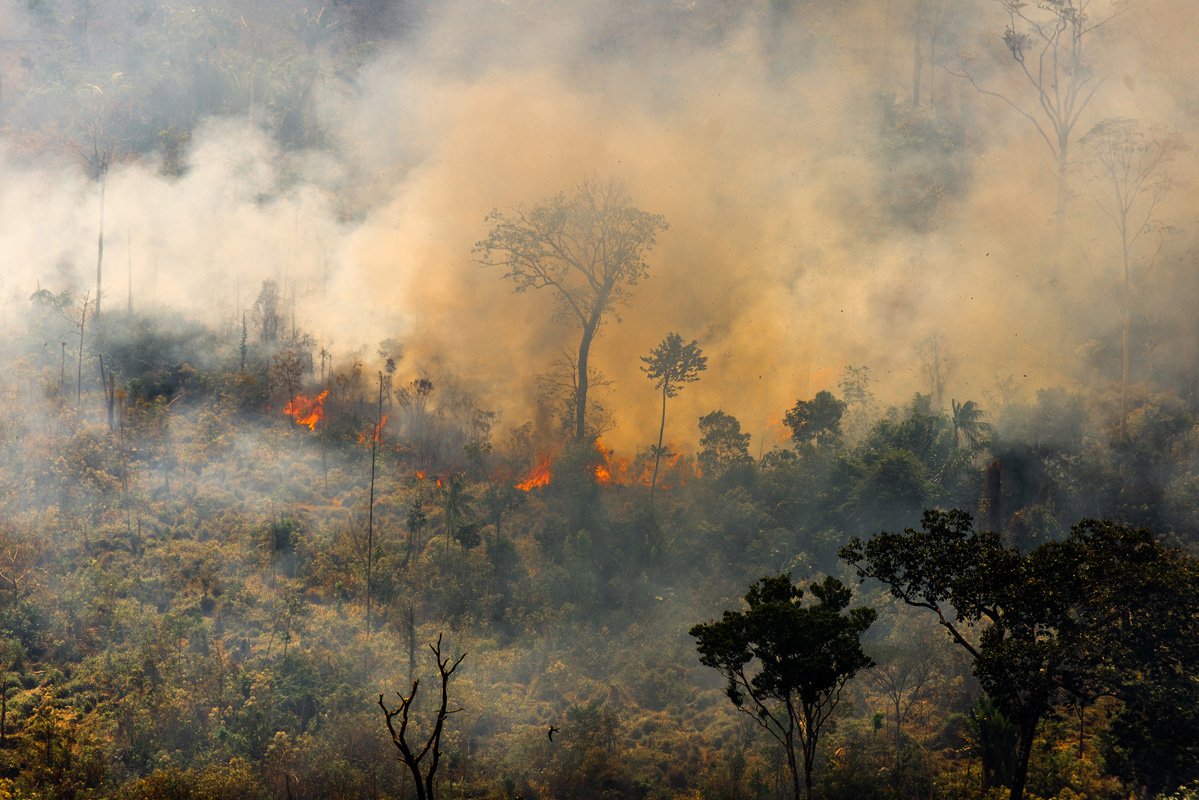
Crime and no punishment: Impunity shrouds killings of Indigenous Amazonian defenders
Threats and violence against Indigenous people and environmental and human rights defenders in the Amazon continued in 2022. This year Mongabay’s Latin America bureau investigated the bloody history of killings of Indigenous people in the Brazilian, Colombian, Ecuadoran and Peruvian Amazon between 2016 and 2021.
The reporting team analyzed data collected by 11 environmental and human rights organizations and found that most official investigations into these killings were unresolved. Lawyers had also frequently reported delays and irregularities in the processes. Meanwhile, the likely perpetrators of most of the killings were linked to illegal activities such as drug trafficking, mining, land grabbing and illegal logging. In Brazil, evidence also suggested the state was implicated in the murders.
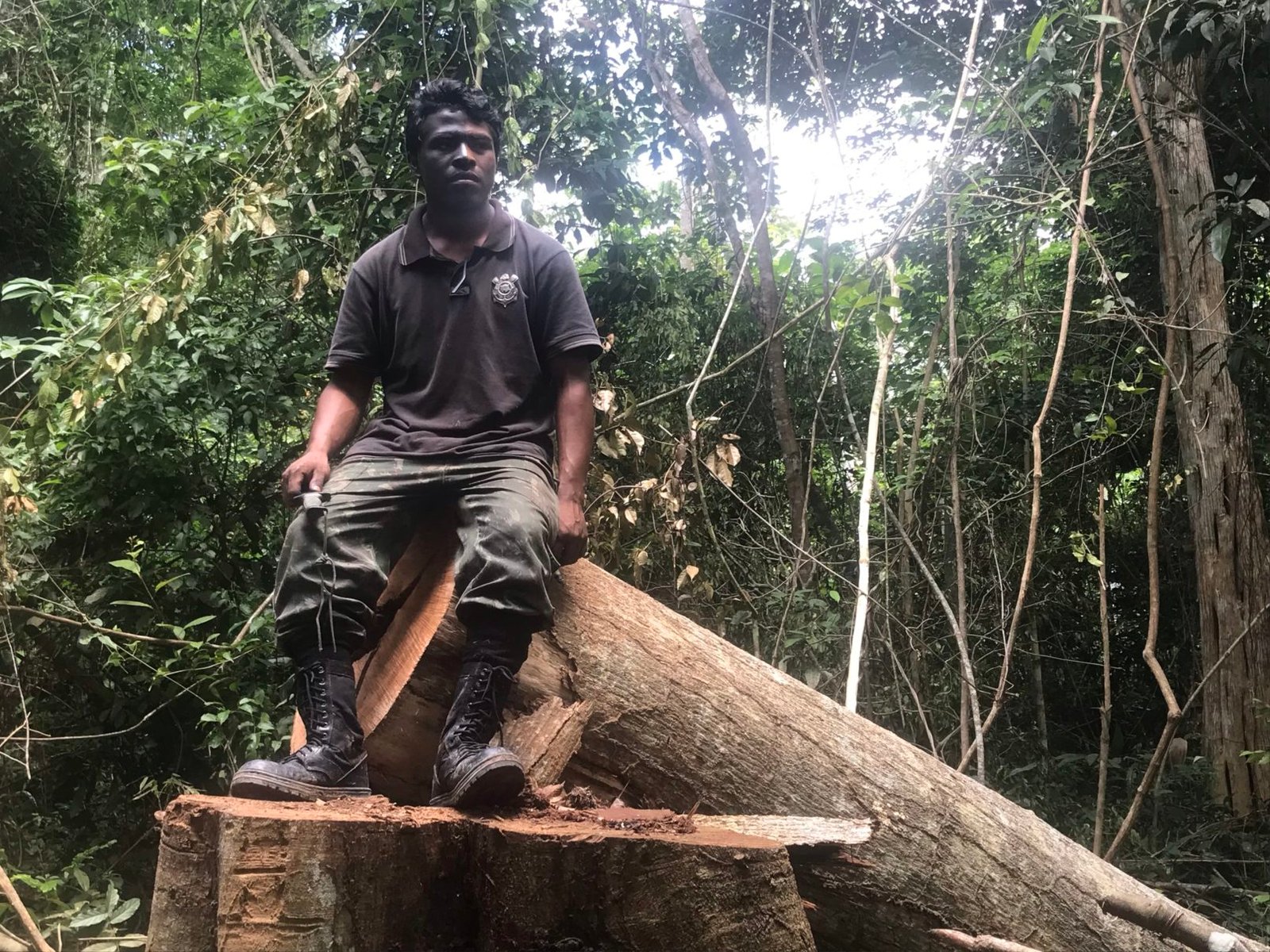
Revealed: Timber giant quietly converts Congo logging sites to carbon schemes
In Central Africa, Mongabay partnered with El País/Planeta Futuro to publish a series of reports on carbon trading schemes, illegal logging and mineral extraction. Reporters found evidence that so-called “conservation concessions” covering millions of hectares were being illegally converted by Portuguese-owned Norsudtimber to carbon credit projects without public oversight, raising concerns over possible future abuses.
In the same region, the series looked at how Chinese-owned companies were targeting CITES II-listed Afrormosia trees for export using military-backed concessionaires that were also illegally mining gold, diamonds and rare metals and using mercury near waterways used by communities to fish, bathe and drink from. Lastly, reporters exposed plans to open timber transport roads in a tropical forest connected to the Yangambi Man and Biosphere Reserve, an area in northeastern DRC that is a wildlife corridor and a haven for chimpanzees, pangolins and Afrormosia.
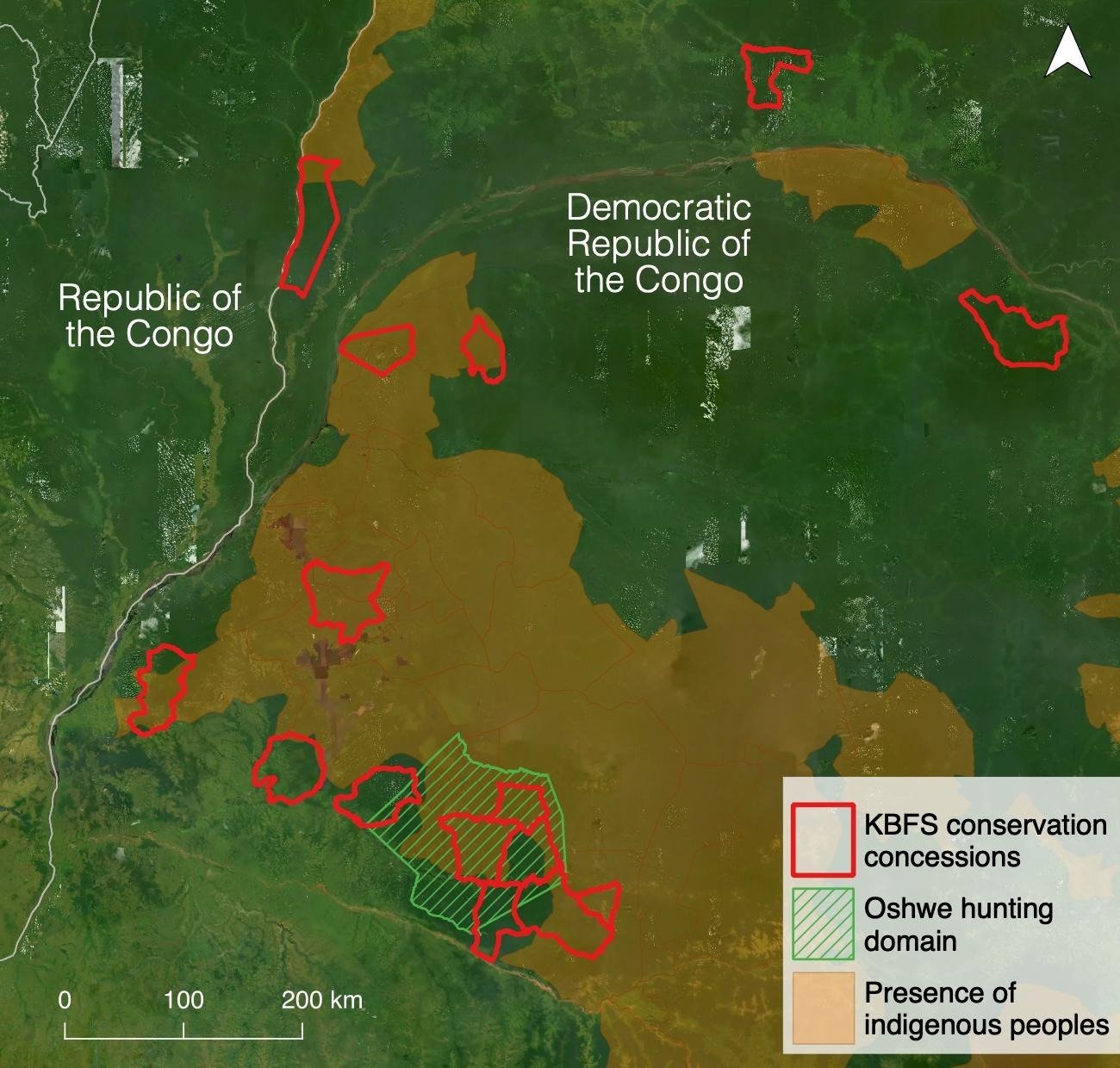
Stained by oil: A history of spills and impunity in Peru, Colombia, Ecuador and Bolivia
Mongabay Latam partnered with Colombia’s Rutas del Conflicto and Cuestión Pública, Ecuador’s La Barra Espaciadora, and El Deber in Bolivia to request official information from environmental agencies in the four countries relating to oil spill cases and fines against companies working in the Amazon of Peru, Colombia, Bolivia and Ecuador between 2011 and 2021.
The reporting collective, ManchadosXelPetróleo (StainedByOil), found a lack of information and transparency, especially in Bolivia, Ecuador and Colombia. The database constructed from government documents revealed there were at least 282 cases against 72 oil companies in Peru and Colombia, and about half had been fined for more than $55 million. In all four countries, oil lots overlapped with Indigenous territories and protected areas. There were 1,646 communities and 52 protected areas that partially or completely overlapped with extractive activities.
Panama: A ‘flag of convenience’ for illegal fishing and lack of control at sea
Flying a “flag of convenience” is legal, but experts say it often lets shipowners benefit from lax auditing and is closely associated with illegal fishing because it can hide the identity of a vessel’s true owners. Over three months, Mongabay Latam partnered with Bloomberg Línea to investigate violations and alleged crimes committed by the fleet of ships flying the flag of Panama, the country whose flag is most commonly used.
The analysis of an official database showed that some of the vessels operating under the Panamanian flag do business with a Chinese company that has one of the global fishing industry’s longest criminal records. Panamanian authorities denied requests for information and reporters discovered a haphazard record-keeping system that makes accountability difficult.
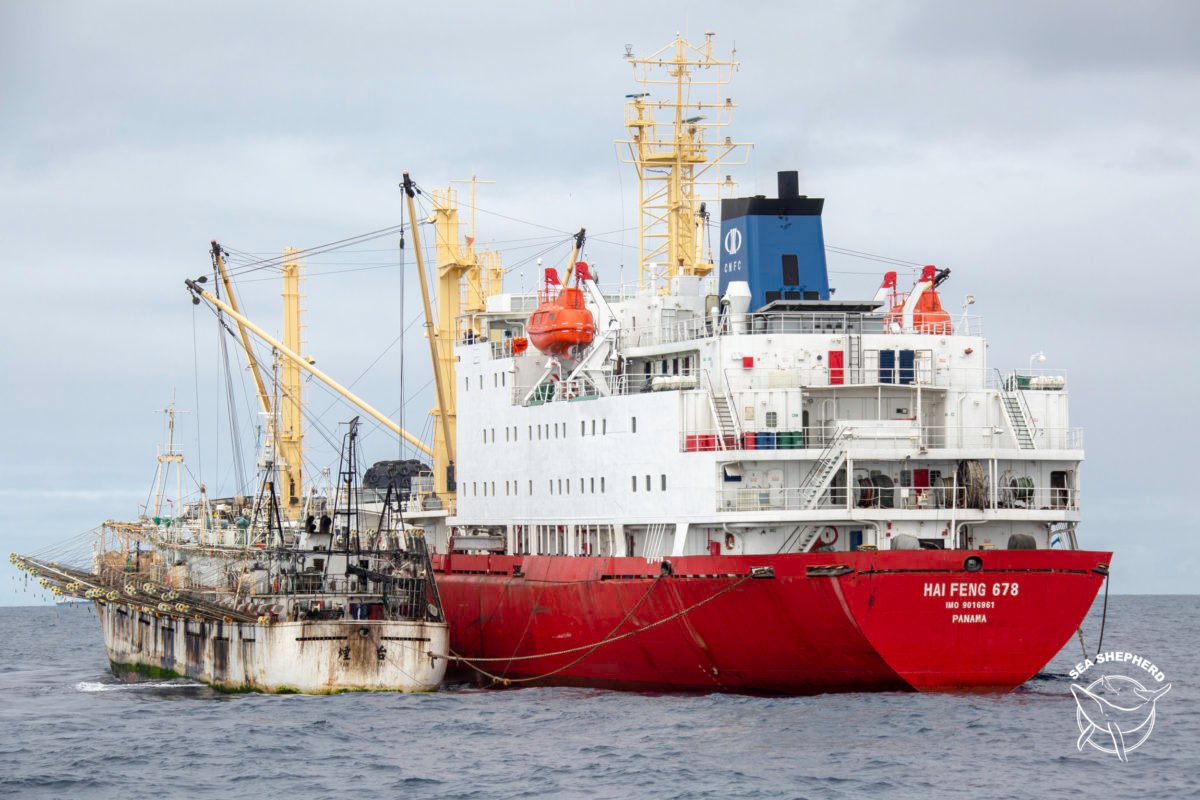
Large-scale logging in Cambodia’s Prey Lang linked to politically-connected mining operation
In Cambodia, Mongabay uncovered evidence of large-scale illegal logging taking place openly inside a swath of protected forest that authorities had only authorized for a feasibility study for limestone mining. Locals and conservationists said the wood leaves the concession awarded to KP Cement in the Prey Lang Wildlife Sanctuary and is laundered through sawmills owned by Think Biotech, a politically connected firm.
Data from Global Forest Watch show that 2021 was the worst year on record for deforestation in Prey Lang, with more than 8,000 hectares (20,000 acres) of primary forest lost in what appears to be a trend of increasing destruction.
Feedback: Use this form to send a message to the editor of this post. If you want to post a public comment, you can do that at the bottom of the page.
Banner image: A road passing through a London Sumatra plantation in Bina Karya village, South Sumatra. Image by Nopri Ismi.




